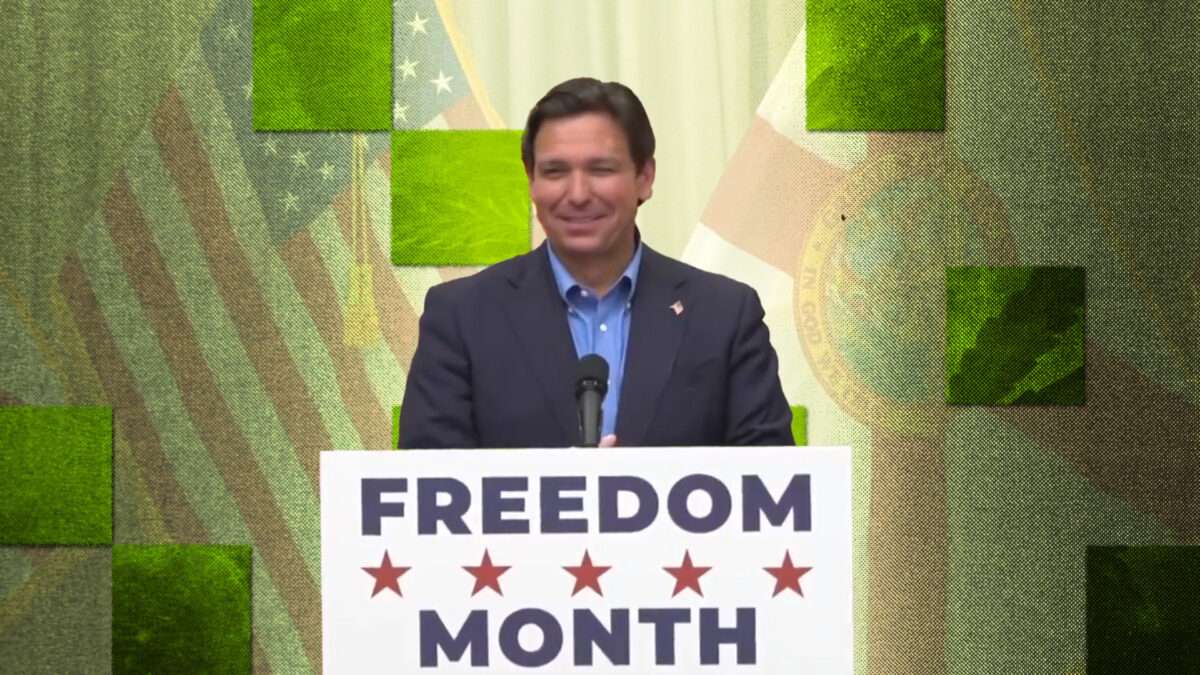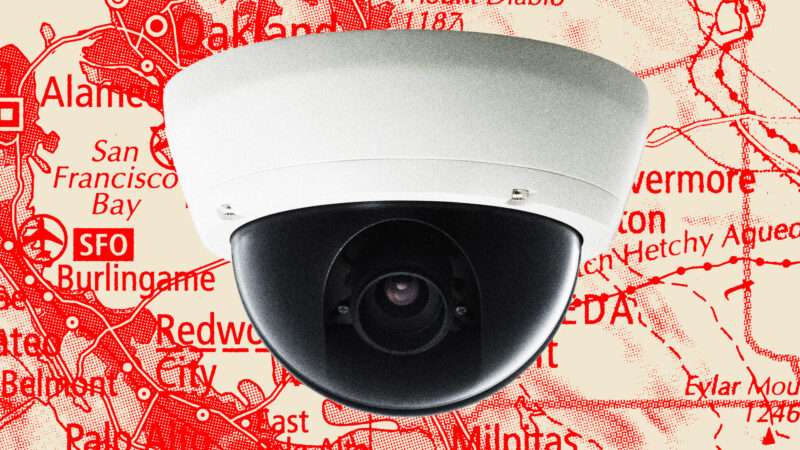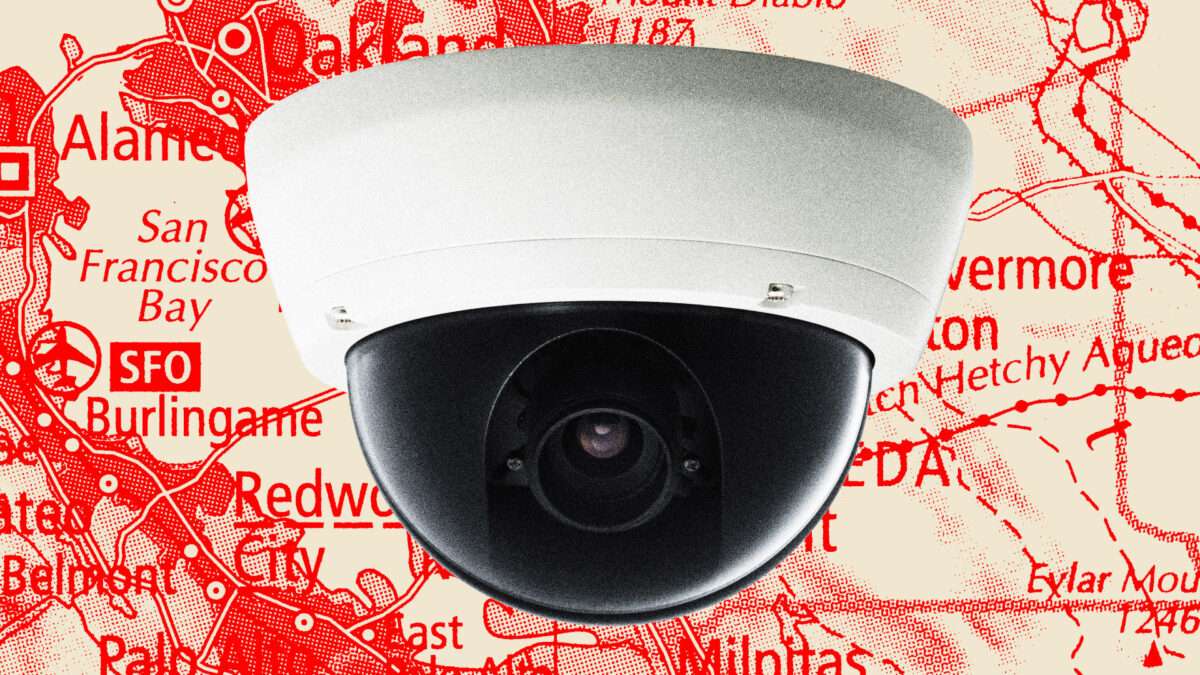DeSantis Frets About Florida 'Reeking of Marijuana,' Says He'll Oppose Legalization

There may not be a more apt visual metaphor for Florida Gov. Ron DeSantis' past few years than his opposition to a proposed marijuana legalization ballot initiative—which he announced Tuesday while literally standing behind a sign celebrating "Freedom Month."
"I don't want this state to be reeking of marijuana," DeSantis said, defaulting to one of the laziest arguments against pot freedom, but one that DeSantis has been using for years. "We're doing fine. We don't need to do that."
How's that for Freedom Month?
In fairness to DeSantis, the jarringly dissonant signage was celebrating the state's sales tax holiday during May. Even so, the gap between DeSantis' pro-freedom messaging and his actions as governor has become a recurring theme for the one-time presidential hopeful.
After all, this is the same guy who wrote a book titled The Courage To Be Free, but has made a name for himself in conservative politics by wielding state power against drag queens, student groups, and others who have had the courage to freely express their opinions. On the presidential campaign trail, DeSantis would talk up the importance of school choice and parental rights, then moments later promise stricter state control over school curriculums. He's championed Florida's status as a refuge for Americans fleeing poor government policies in other states, even as he's tried to boot out migrants who are voting with their feet by coming to America for the same reason.
Freedom, for DeSantis, seems to mean that you can do whatever you'd please—but only if he approves.
It's disappointing, but hardly surprising, that DeSantis is applying that same logic to marijuana legalization. Florida residents might get a chance to vote on legalizing recreational weed in November, but DeSantis promised Tuesday that he would be "getting involved in different ways" to combat that ballot initiative. It's unclear exactly what DeSantis means, but State Attorney General Ashley Moody and some anti-legalization groups have already sued in state court to block the initiative from getting on the ballot.
The ballot initiative, Florida Amendment 3, would change the state's constitution to allow adults aged 21 and older to possess up to three ounces of marijuana. Existing licensed medical marijuana distribution centers—Florida voters approved medical marijuana in 2016—would be the only places allowed to distribute recreational weed, although state lawmakers could pass new laws to allow for commercial distribution and home growing.
As Marijuana Moment notes, economic analyses of the ballot initiative show that legalization would be a boon for Florida and could generate between $195.6 million and $431.3 million in new sales tax revenue annually.
Greater freedom for Floridians and higher tax revenue seem to matter less to DeSantis than the possibility that some of the state's residents might dislike the smell of reefer. "You want to walk down the street here and smell it," he asked, rhetorically, on Tuesday. "Do you want to not be able to take your family out to dinner because you're worried about it?"
If that's the best argument that the opponents of legalization in Florida can muster, there might be little cause for concern. Even so, having the (admittedly quite popular) governor campaigning against legalization figures to be a factor in the election.
Voters seem to be split on the legalization issue: A poll taken last month by USA Today and Ipsos showed 49 percent of Floridians support the ballot initiative—including 38 percent of registered Republicans. That's well short of the 60 percent threshold required for the amendment to pass.
What DeSantis does as Florida's governor will continue to carry national implications, not solely because he remains one of the most well-known Republican politicians in the country. He's reportedly seeking to patch up his relationship with former President Donald Trump—the two had dinner this week, according to The Washington Post—and may have a role to play in a future Trump administration, or as a Republican presidential candidate in 2028.
By then, maybe he'll have gotten over his fear of the smell of weed.
The post DeSantis Frets About Florida 'Reeking of Marijuana,' Says He'll Oppose Legalization appeared first on Reason.com.



